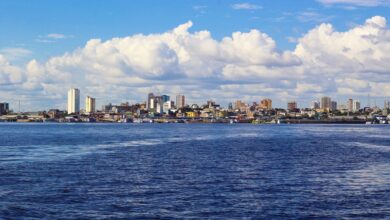How Will The Latinamerican Left Handle Climate Chage?
With Gustavo Petro's victory in Colombia, the shift to the left in the region seems imminent. How will this agenda impact the fight against climate change and other environmental policies?

Photo: TW-Gustavopetro, TW-gabrielboric, TW-Lulaoficial
LatinAmerican Post | María Fernanda Ramírez Ramos
Escucha este artículo
Leer en español: Con los gobiernos de izquierda, ¿qué viene para Latinoamérica en medio ambiente?
Most governments in Latin America are taking a turn towards left-leaning governments that, among other issues, carry the flag of protecting the environment. They have even raised the need to end the exploitation of certain resources, such as oil. Although these proposals have generated much debate among economists, the truth is that urgent measures must be adopted from the environmental point of view, if the latest reports on climate change are taken into account.
In the most recent elections in the region, in Colombia, the elected president Gustavo Petro made an invitation to unite around the protection of the environment. He also spoke of climate justice and the urgent need to change the production model and work for agriculture. In this regard, he indicated to the progressivisms of the region: “I suggest that you think that Latin America can be built around agriculture and agrarian reforms; of agroindustrialization and new technologies, which mean production based on knowledge and the reunion with nature. A productive, non-extractivist Latin America”.
We recommend you read: 8 Latin American Countries Have Come Together To Combat Plastic Pollution
Likewise, he sent a criticism to the United States and its high production of greenhouse gases. “I think the time has come to sit down with the government of the United States and talk, dialogue about what it means that throughout this American continent that we share, the most greenhouse gases are emitted in the US”.
However, he is not the only president who today points to the environmental problem as a priority. In fact Gabriel Boric, in Chile, also has it as a fundamental part of his mandate. In his government program he states that "Chile must be a carbon neutral country (…) with ambitious actions to adapt and protect our terrestrial and marine ecosystems, such as glaciers, coasts and oceans." To do this, it intends to define a roadmap to face the climate crisis, with a focus on the regions, which is planned in the medium and long term.
For his part, Lula da Silva, former president and candidate in Brazil for the October elections, has as one of the pillars of his campaign the protection of the Amazon and the environment. This is in contrast to Bolsonaro, who has led the jungle to one of the worst moments of deforestation in recent decades.
However, uniting the different countries of Latin America around a common environmental agenda is not an easy task, considering that the cases of integration in the region for other issues have not been entirely successful. The first step in this direction will be for all the countries to ratify the Escazú Agreement and effectively comply with what is proposed there in terms of information, justice and participation in environmental matters.
Likewise, it should be noted that not all governments have the environmental and climate change agenda as a real priority. For example, López Obrador in Mexico has disappointed.
Challenges and opportunities to meet the environmental agenda
The truth is that it is a key and decisive moment in terms of environmental protection and actions to adapt to and mitigate climate change. The resilience capacity that countries develop today will be fundamental in the medium and long term.
Although ideally, the world should move towards a green economy, this requires a large investment. In this sense, the left-wing rulers, who also have a robust social program, will have to face the great challenge of obtaining financing for these programs, taking into account that hydrocarbons and the exploitation of other natural resources, such as lithium or wood, are essential for Latin American economies. In fact, this was pointed out by Lula Da Silva himself, before Petro's proposal to leave the oil industry behind to go towards green energies. In this sense, the first and biggest problem will be financing, adding the delicate post-pandemic moment that has increased inequality and poverty.
Second, Latin America must act quickly on food security, not only for the region but for the entire world. Antonio Guterres, Secretary General of the United Nations, pointed out that due to the war in Ukraine, "an unprecedented wave of hunger and misery" will be unleashed. It is well known that a large part of humanity, including South America, depends on Ukraine's fertilizers, food and agricultural products. Thus, it is necessary to strengthen agriculture in the region with the use of state-of-the-art technologies and less dependency.
On the other hand, according to ECLAC, in Latin America there are around 45 million indigenous people. Their knowledge is fundamental and of great value for the prevention of environmental crises. This has been pointed out by various institutions, including the United Nations. In this sense, governments must create greater opportunities and better conditions for the development and dissemination of this knowledge in environmental policies.
Finally, waste management is one of the greatest weaknesses in most Latin American countries. This factor, together with others such as deforestation, are also destroying biodiversity.




